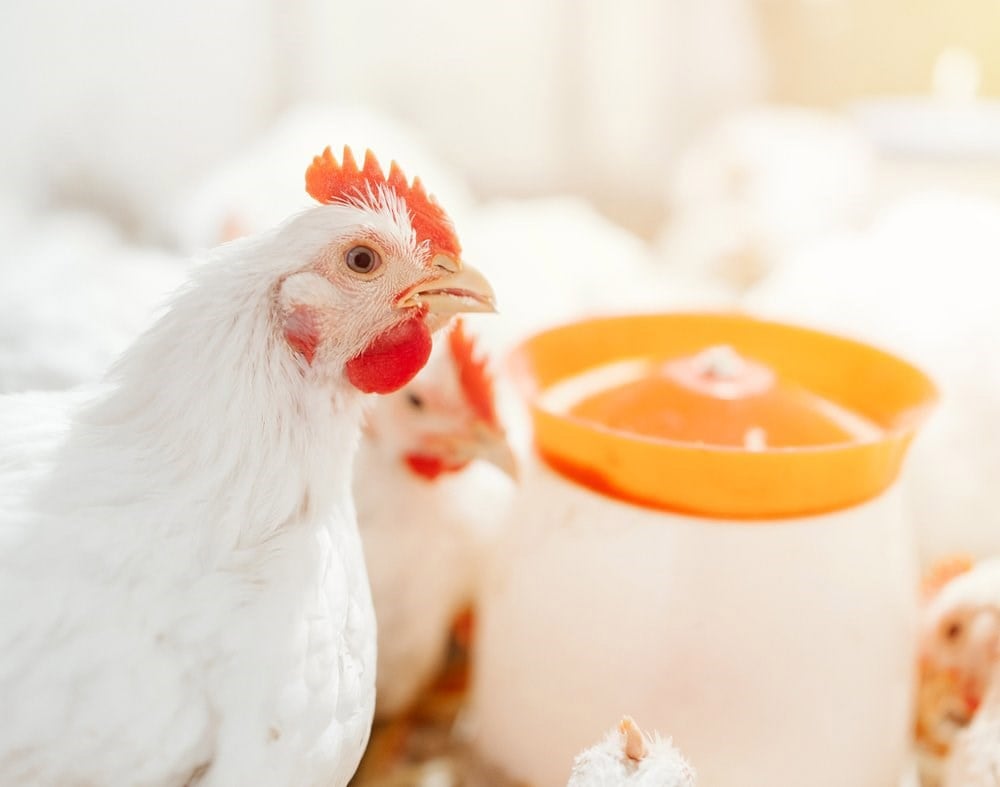Moisture management is a crucial aspect of poultry farming that directly impacts the health and productivity of birds. Proper management techniques not only ensure the well-being of the birds but also contribute to maintaining a hygienic environment within the poultry house. In this comprehensive guide, we'll delve into the importance of moisture management, effective strategies to control moisture levels and the benefits it brings to poultry farming operations
Understanding the Importance of Moisture Management
Moisture control plays a vital role in poultry farming as excessive moisture levels can lead to various health issues among birds and create an environment conducive to the growth of harmful pathogens. High humidity levels within the poultry house can result in respiratory problems, increased susceptibility to diseases, and decreased feed conversion rates. Additionally, moisture accumulation in litter and bedding materials can lead to ammonia emissions, causing respiratory distress and discomfort for the birds.
Implementing proper moisture management practices not only mitigates health risks but also enhances overall bird performance and welfare. By maintaining optimal moisture levels, poultry farmers can create a comfortable and healthy environment that promotes growth, reduces stress, and improves the quality of meat and eggs produced.
Effective Strategies for Moisture Control
- Ventilation Systems: Adequate ventilation is essential for regulating moisture levels within the poultry house. Properly designed ventilation systems ensure sufficient air exchange, allowing excess moisture to be expelled and fresh air to circulate throughout the facility. Natural ventilation methods, such as ridge and side wall openings, along with mechanical ventilation systems, such as fans and air inlets, can be employed to achieve optimal airflow and humidity control.
- Bedding Management: Maintaining proper bedding materials and regularly monitoring their moisture content is critical for moisture control in poultry houses. Bedding materials, such as wood shavings, straws, or recycled paper, should be kept clean, dry, and adequately replaced when necessary. Implementing proper drainage systems and using absorbent materials can help prevent moisture buildup in litter, reducing the risk of bacterial growth and ammonia emissions.
- Water Management: Effective water management practices play a significant role in moisture control within poultry facilities. Leak-proof water delivery systems should be installed to prevent spills and minimize moisture accumulation in the environment. Additionally, proper sanitation of waterers and regular cleaning of drinking lines help maintain water quality and reduce microbial contamination, further enhancing moisture management efforts.
Benefits of Moisture Management in Poultry Farming
- Improved Health and Welfare: By controlling moisture levels and minimizing environmental stressors, poultry farmers can significantly enhance the health and welfare of their birds. Reduced humidity levels and proper ventilation promote respiratory health, minimize the risk of heat stress, and decrease the incidence of respiratory diseases, ultimately leading to healthier and more robust flocks.
- Enhanced Performance and Productivity: Optimal moisture management positively impacts poultry performance and productivity. Birds raised in a well-ventilated and dry environment exhibit improved feed conversion rates, faster growth rates, and higher egg production. By creating ideal conditions for growth and development, farmers can maximize the efficiency of their operations and achieve better economic outcomes.
- Environmental Sustainability: Implementing effective moisture management practices not only benefits poultry production but also contributes to environmental sustainability. By reducing moisture-related emissions, such as ammonia and greenhouse gases, farmers can minimize the environmental footprint of their operations. Additionally, proper litter management and waste disposal practices help prevent pollution and protect natural resources, ensuring the long-term sustainability of poultry farming.
